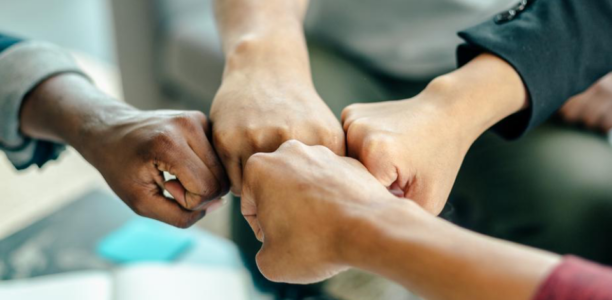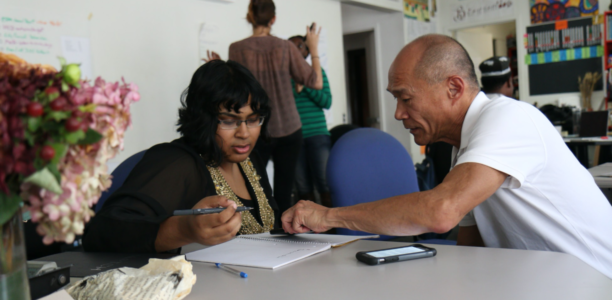If you suspect that a friend or family member is being abused, here are some ways you can help:
Stay connected – Abuse thrives in isolation. Now more than ever, someone who is being abused may find it difficult to stay connected to people who care about their safety. Reach out, check in on them, and let them know they are not alone.
Be open to learning – Be willing to listen to what they are telling you, without judgement. Give them space and time to share their story. It may be difficult for them to share, so practice patience, empathy, and active listening. Try paraphrasing or repeating back what they’re telling you. Remember, this is not about you. It is important that you support them, regardless of whether they leave or stay.
Believe them – It’s important to believe what they are telling you, without asking for additional details or “proof.” The abuser may be telling them no one will believe them if they reach out for help. Believing them shows your support and can serve to lessen the abuser’s control over them. Do not judge or shame them, and do not try to justify or make excuses for the abuser’s behavior. Abuse is never, ever the victim’s fault.
Share your concerns – It is okay to share your honest concerns about their safety. Try using “I” statements. For example, “I am worried about you. I want you to be safe.” Remember not to pressure or force your opinion.
Help them develop a plan, if they’re ready – See the list below for safety planning tips, but keep in mind that every person’s plan will be different. Consider using a“safe” word, when appropriate. This is a code word they can use to let you know they are in danger without the abuser knowing. Agree on what you should do if they use this word. It might also include agreeing on a place to meet them if they have to leave in a hurry.
Offer to help find resources – Knowledge is power. You want to help empower them to make an informed decision. Remember that you cannot ‘rescue’ them – this is their life. However, if they do want to reach out for help, there are local domestic violence agencies throughout the state that have trained advocates who can help them safety plan and consider their options.
To find a local program, call the NJ Statewide Domestic Violence Hotline at 800-572-7233, or the Deaf Helpline 609-619-1888, or visit NJCEDV’s Guide to Services.
Take care of yourself – Knowing that someone you care about is being abused can be emotionally draining for you, too. Make sure you are checking in with yourself and practicing self-care. If you, at any point, are feeling overwhelmed, helpless, resentful, or start prioritizing other people’s needs before your own, make sure to seek out help and support.
For someone who feels unsafe at home, here are a few tips to help you create your own safety plan. Keep in mind that each person’s experience and needs are unique.
- Identify safe areas of the house where there are no weapons and there are ways to escape. If arguments occur or your partner’s behavior escalates, try to move to those areas.
- Don’t run to where the children are, as your partner may try to hurt them as well.
- If violence is unavoidable, make yourself a small target. Dive into a corner and curl up into a ball with your face protected and arms around each side of your head, fingers entwined.
- If possible, have a phone charged and accessible at all times and know what numbers to call for help. Try to memorize the phone number to your local domestic violence program, a trusted friend, or the statewide hotline (800-572-SAFE). If you fear your life is in danger, call 911.
- Let trusted friends and neighbors know of your situation and develop a plan and signal for when you need help, such as turning on the porch light.
- Teach your children how to get help. Instruct them not to get involved in the violence. Plan a code word to signal to them that they should get help.
- Practice how to get out safely. Practice with your children.
- Plan for what you will do if your children tell your partner of your plan, or if your partner otherwise finds out about your plan.
- Keep weapons like guns and knives locked away and as inaccessible as possible.
- Make a habit of backing the car into the driveway and keeping it fueled. Keep the driver’s door unlocked and others locked — for a quick escape.
- Try not to wear scarves or long jewelry that could be used to strangle you.
- Set up a time to talk with someone you trust. Try to make sure you have privacy and won’t be distracted or interrupted.
- During this COVID-19 crisis: If you are packing or have already packed a go-bag, make sure to include soap, hand sanitizer, tissues, small trash baskets, and face masks.
- If you usually meet with a counselor, case manager, attorney, or legal advocate, ask about options for meeting remotely.
- Know where the health centers are where you’re going, and keep their phone numbers in a safe place (also, know how to get there).
- If you are isolated, try to maintain social connections online or over the phone, if it is safe to do so, and try to stick to your daily routines as much as possible.
- Be mindful of your needs and feelings, and try to engage in self-care activities when possible.
- Take good care of yourself, and remind yourself every day that you deserve to be safe, respected, and loved.





